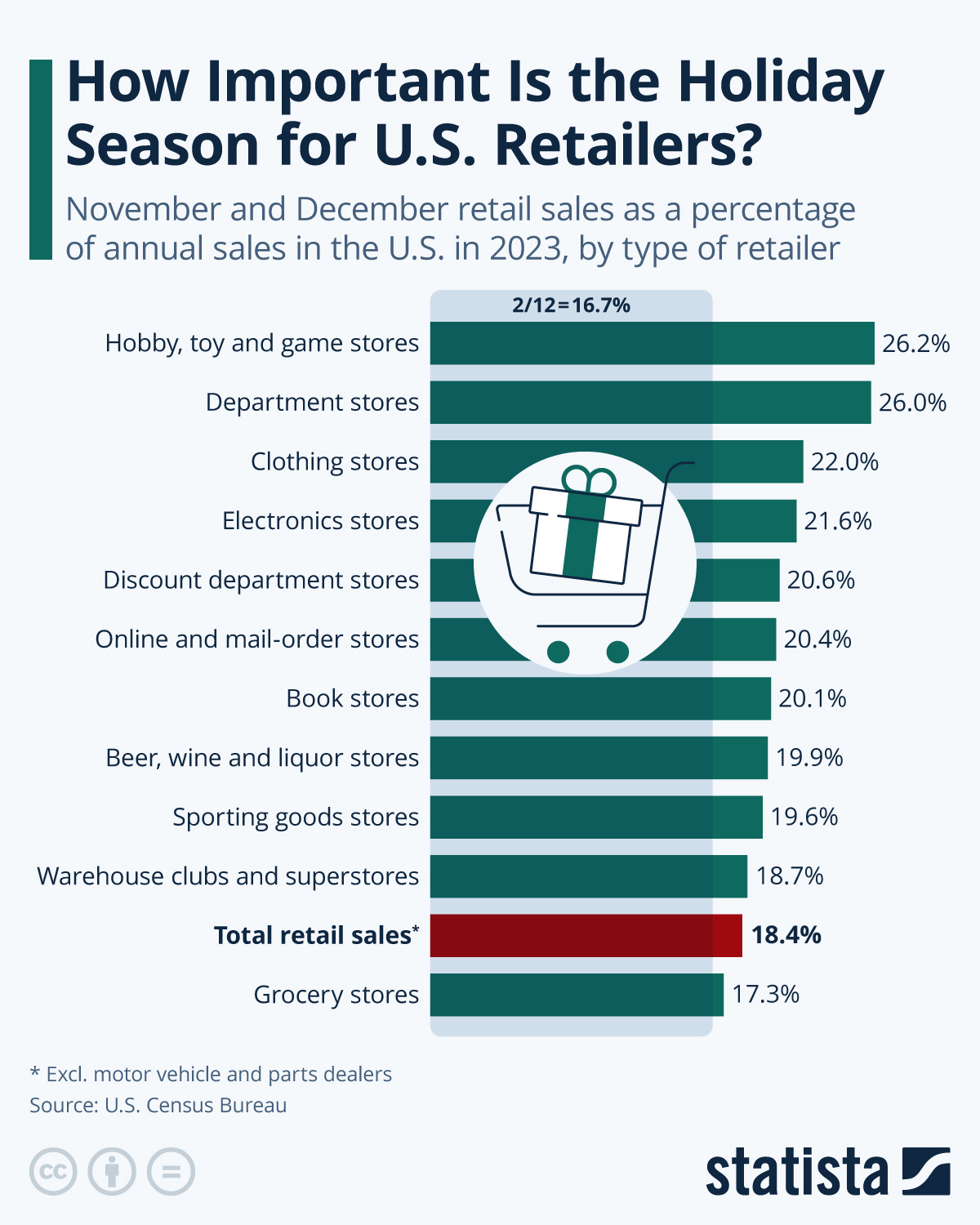Conventional wisdom says that the weeks leading up to Christmas are the most important time of the year for retailers in the United States. According to the National Retail Federation, Americans are going to spend between $957 and $967 billion during November and December this year, with average spending for gifts and other holiday-related items expected to amount to $875 per consumer.
But how reliant are retailers on a successful holiday season? Can two to three months really make or break an entire year? Well, it depends. According to retail sales figures published by the U.S. Census Bureau, some types of retailers are more reliant on holiday season sales than others.
If retail sales were distributed evenly throughout the year, the holiday quarter, i.e. the period from October through December, should account for 25 percent of the year’s total sales. As our chart illustrates, most retailers’ holiday sales clock in way above that benchmark though. Hobby, toy and game stores for example generated 34.5 percent of their annual sales in the last three month of last year, which is not surprising considering that toys, games and hobby supplies are popular Christmas gifts.
Across all categories, the holiday season is not as important as one might think though. Last year, the fourth quarter accounted for 26.8 percent of total retail sales in the United States. There are even some retailers that don't look forward to the holiday quarter as it delivers subpar results. Those include car dealerships, gas stations and building material and supplies dealers.




















